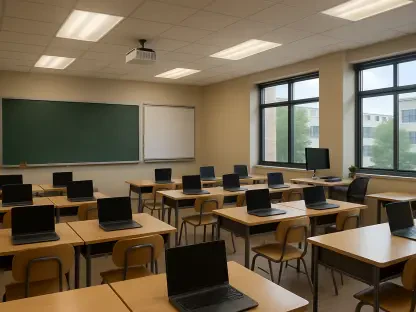The recent policy shift in Texas, ending affordable in-state tuition for undocumented students, marks a pivotal moment for thousands pursuing higher education. Established in 2001, the Texas Dream Act provided undocumented students the opportunity to attend college under more economical in-state tuition rates, significantly easing their financial burdens. However, the recent decision by state officials to retract this provision is reshaping the educational landscape for these students, confronting them with steep tuition hikes and larger financial hurdles. Affected individuals and their supporters argue that this change not only disrupts personal educational goals but also affects broader community contributions and economic integration. The immediate impacts are felt profoundly by students like Eddie, whose pursuit of a nursing degree now appears far more challenging due to increased educational costs. This situation highlights the intersection of educational opportunities and immigration policies, and the broader implications on social and economic integration efforts.
Financial and Academic Impacts on Undocumented Students
The withdrawal of in-state tuition rates for undocumented students in Texas represents a substantial financial challenge, doubling or even tripling tuition fees for students who lack legal residency status. Students like Eddie, previously benefiting from these reduced rates to earn degrees and contribute to their communities, now face drastic cost increases. For Eddie, who experienced the support of the Texas Dream Act while obtaining a bachelor’s degree, the recent policy reversal has caused a hefty spike in tuition as he continues his education at the University of Texas Rio Grande Valley. The shift will likely restrict access to higher education for many undocumented students, posing significant economic and educational setbacks. The steep financial barrier may deter students from pursuing higher education or force them to incur burdensome debts, with potential long-term effects on their career opportunities and financial stability. Additionally, the academic institutions themselves may experience shifts in diversity and representation, altering the dynamics of learning environments.
As these students navigate escalating financial demands, the uncertainty surrounding their educational future becomes a pressing concern. The potential for indebtedness poses an imminent threat to aspiring students, as tuition rates surge from previously manageable amounts to exorbitant ones beyond reach. Characterized by increased stress and uncertainty, undocumented students must now contend with financial challenges that overshadow academic aspirations. This change introduces new dimensions of inequity in the higher education system, impacting not only students’ immediate educational experiences but also their prospects for career advancement and economic contribution. As these barriers grow more formidable, the fundamental question remains: how will undocumented students adapt to this altered educational terrain? In grappling with this unprecedented landscape, both students and educational institutions must seek innovative strategies to mitigate the repercussions of this policy shift.
Socio-Economic Integration and Educational Pathways
The rescindment of affordable in-state tuition for undocumented students could have lasting implications not only for the students themselves but also for the broader community. Educational pathways have historically served as significant avenues for socio-economic integration, providing undocumented individuals opportunities to acquire degrees, secure employment in high-demand sectors, and stimulate local economies. The Texas Dream Act had intended to foster such integration, enabling students to advance both personally and professionally. The abrupt policy change, however, restricts this upward mobility, potentially diminishing the economic contributions of a demographic whose educational and professional advancement is integral to community development.
For proponents of educational inclusivity, the end of this provision is a setback that may stymie the progress achieved over time. It restricts access to education, complicating students’ ability to transition smoothly into the job market and contribute positively to local economies. Figures like Julieta Garibay stand as testaments to the Dream Act’s impact, demonstrating how educational access can propel undocumented individuals towards success and eventual citizenship. With the policy’s reversal, the aspiration to harness the potential of undocumented students for communal growth is being eroded, posing an issue not only of access but also of lost potential. The broader societal debate illuminates a crucial intersection of immigration and education policy, raising questions about the equitable distribution of educational opportunities. Communities must now reassess how to fulfill captured aspirations without the mechanisms that have sustained success for over two decades.
The Broader Implications for Immigration and Education Policy
Texas recently ended in-state tuition for undocumented students, marking a key change for those seeking higher education. The Texas Dream Act, enacted in 2001, had allowed undocumented students to attend college with in-state tuition fees, offering significant financial relief. Now, the reversal by state officials introduces new financial challenges for these students, with many facing substantial tuition increases and financial obstacles. Supporters and affected students argue that this policy shift disrupts personal educational aspirations and hinders broader economic and community contributions. For instance, Eddie, a nursing student, now faces greater financial difficulties due to added school costs. This situation shines a light on how educational opportunities are tied to immigration policies, emphasizing the broader consequences for social and economic integration. The move reflects ongoing debates about education access and immigration, raising questions about the future of community growth and the economy, affecting both individuals and society at large.









